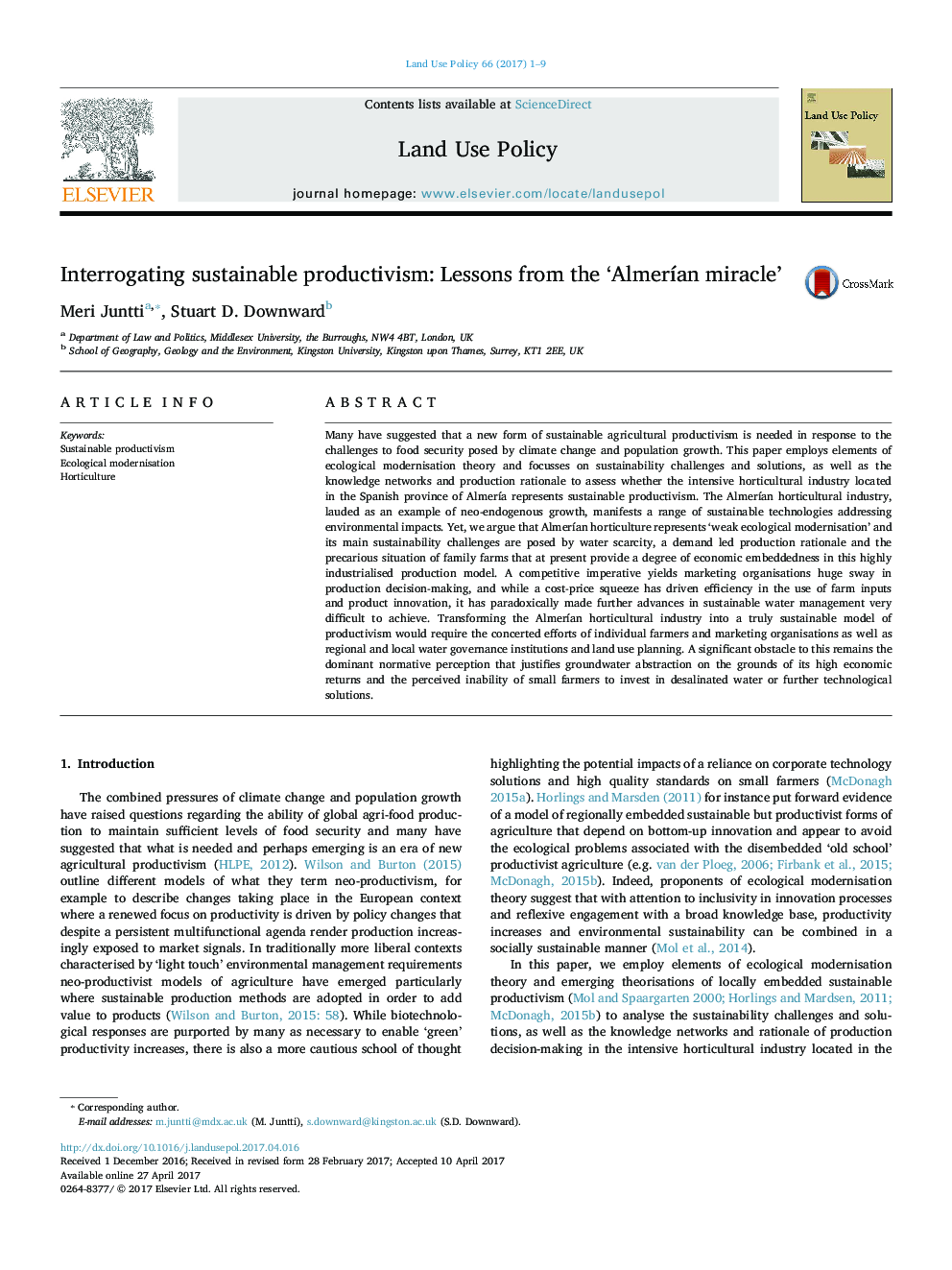| Article ID | Journal | Published Year | Pages | File Type |
|---|---|---|---|---|
| 6460892 | Land Use Policy | 2017 | 9 Pages |
â¢Ecological modernisation theory is applied to assess the AlmerÃan horticultural sector.â¢Despite many environmental measures, resource use and production methods do not yet measure up to sustainable productivism.â¢Concerted efforts of farmers, marketing, planning, energy and water institutions are required to realise sustainable productivisim.â¢Both coercive and deliberative governance approaches are required to change water use and associated normative views of its legitimacy.
Many have suggested that a new form of sustainable agricultural productivism is needed in response to the challenges to food security posed by climate change and population growth. This paper employs elements of ecological modernisation theory and focusses on sustainability challenges and solutions, as well as the knowledge networks and production rationale to assess whether the intensive horticultural industry located in the Spanish province of AlmerÃa represents sustainable productivism. The AlmerÃan horticultural industry, lauded as an example of neo-endogenous growth, manifests a range of sustainable technologies addressing environmental impacts. Yet, we argue that AlmerÃan horticulture represents 'weak ecological modernisation' and its main sustainability challenges are posed by water scarcity, a demand led production rationale and the precarious situation of family farms that at present provide a degree of economic embeddedness in this highly industrialised production model. A competitive imperative yields marketing organisations huge sway in production decision-making, and while a cost-price squeeze has driven efficiency in the use of farm inputs and product innovation, it has paradoxically made further advances in sustainable water management very difficult to achieve. Transforming the AlmerÃan horticultural industry into a truly sustainable model of productivism would require the concerted efforts of individual farmers and marketing organisations as well as regional and local water governance institutions and land use planning. A significant obstacle to this remains the dominant normative perception that justifies groundwater abstraction on the grounds of its high economic returns and the perceived inability of small farmers to invest in desalinated water or further technological solutions.
